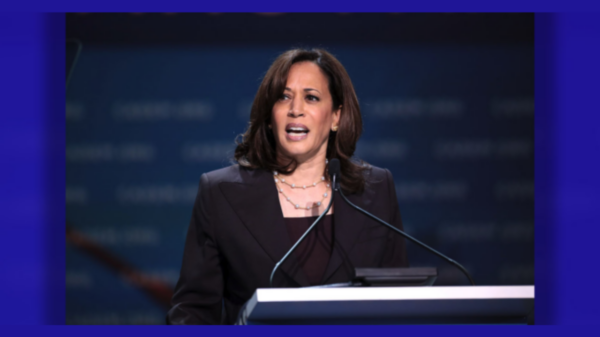By Perry Bacon Jr.
The Philadelphia Tribune
Reprinted – by Texas Metro News
https://www.phillytrib.com/
There’s a heated debate happening online and on television about what Democrats should do after their second loss to Donald Trump. The arguments and counter-arguments are likely to go on for months and maybe years — until the next presidential election.
I hope the party eventually lands on proposals to make housing, child care, health care and other necessities more affordable, along with strong rhetoric attacking the rich and corporations for capturing a growing share of the nation’s wealth while many ordinary Americans struggle. Such economic populism doesn’t guarantee victory, but it’s probably the best option.
Let’s start by explaining the intraparty debate. There are four main explanations being given for Vice President Kamala Harris’ defeat:
1. High inflation after the COVID-19 pandemic permanently turned people in the United States and around the world against whomever was in power during that time. So President Joe Biden’s polling plunge and the Democrats’ struggles in this election were largely out of the party’s control. That’s the perspective of many liberal Democrats and Democratic Party officials. Lots of political scientists also hold this view.
2. Trump successfully appealed to the patriarchal, anti-Black and pro-white sentiments held by many voters, including some of color. Black liberal commentators in particular have made this case. They argue that the Democratic Party embodies a multicultural nation that many Americans reject and that Harris’ identities as both a woman and racial minority further amplified these cultural tensions.
3. The Biden administration and particularly the Harris campaign didn’t attack the rich and corporations enough and spent too much time bashing Trump for the Jan. 6 attack, instead of focusing more on Americans’ economic frustrations. This sentiment is coming largely from leftists who are more aligned with Sen. Bernie Sanders (I-Vermont).
4. Many centrist Democrats argue the party is too left on transgender rights, immigration and other issues tied to identity and race.
These explanations, unsurprisingly, align with the interests and pre-election views of those offering them. If inflation in 2021-2022 was the main cause of Trump’s win, then Biden’s and Harris’s political advisers shouldn’t get much blame. Black commentators, myself included, have long argued that the role of race, gender and identity are under-examined by a news media that remains dominated by white men uncomfortable with such topics. Of course Sanders supporters think Harris would have done better if she sounded more like Sanders!
I ordered these explanations based on how much I think they explain Harris’ loss. (Those rankings naturally reflect my own biases and pre-election views.) Although I suspect all four were at play, the first and second explanations combined are probably the most accurate story of this year’s election. Republicans start off with around 45% of the vote in U.S. elections (in part because of the party’s views on racial and social issues). High prices and general frustration with incumbent Democrats provided Trump’s winning margin, an additional five percentage points or so.
The inflation theory of 2024 points to an obvious future strategy for Democrats — change nothing or very little. Harris lost narrowly despite inflation and Biden’s unpopularity. It’s entirely possible that Democrats will win in 2026 and 2028 simply because voters will tire of Republicans once they are in charge.
After all, that’s what happened in the very recent past. The last two times the Democrats lost presidential elections (2004, 2016), people throughout the party called for major shifts. Nothing really changed. The Democrats won in 2006, 2008, 2018 and 2020 anyway.
But that’s not a great long-term strategy for Democrats or the country overall. Relying on luck, circumstance and anti-incumbency sentiment means Democrats will keep trading power with an increasingly extreme Republican Party.
So why Sanders-style populism? I have long agreed with raising the minimum wage, increasing taxes on the wealthy, expanding Medicare and many of ideas pushed most prominently by Sanders and Sen. Elizabeth Warren (D-Mass.) But I suspected more moderate Democratic nominees would have a better chance of winning in the general election. I didn’t see bashing the rich and big corporations as essential to successful politics. And I wasn’t too wary of super-wealthy individuals, because Mike Bloomberg and other billionaires often favored gun control and other progressive policies on social issues.
But Elon Musk and others are now using their money to dominate civic institutions, undermine government regulations and defeat politicians who try to rein them in. Their actions have shown the policy problems caused by the ultrarich. And billionaires are an ideal villain on the campaign trail. I don’t think Democrats can win consistently with good but dull policy plans while Trump is telling people that elites and undocumented immigrants are ruining the country. Democrats seem as if they largely support America’s status quo even though as a clear majority of people say the country is heading in the wrong direction. A message of taking America back from billionaires and corporations would push Democrats toward good policies (antitrust, pro-union) and also rhetoric and ads that are memorable and connect with voters’ discontent.
It can’t be economics alone, though. So Democrats should adopt a race-and-class message that addresses the social issues, but in a way that shifts back to economics, as many progressive strategists have long urged. Something like, “We want great education and health care for everyone, but billionaire-funded politicians attack immigrants and transgender people to divide and distract us while they cut taxes for the rich.”
This approach doesn’t say exactly how Democrats should handle a 10th-grade transgender girl winning a swim meet over other participants who were assigned female as their gender at birth. But the broader idea is to make big corporations the central villains in American politics, instead of immigrants, and to make the central fight economic populism vs. cultural populism.
What about moving to the right on social issues? I’m fine with Democratic politicians not using terms such as “white privilege,” “pregnant people,” “Latinx” or “defund.” But prominent figures in the party such as Biden and Harris already don’t use the most progressive language possible. (And Democrats won the 2018 and 2020 elections when such language was more prominent in the party.) It’s likely that the Democrats would need to take substantive steps to the right on social issues to make a real difference electorally.
I don’t want Democrats to move in that direction — because I firmly disagree with it on policy grounds. I want refugees to come here; people to live openly in whatever gender identity feels right for them; local governments to spend less money on policing and more on other services; schools and universities to make intentional efforts both to increase their racial and socioeconomic diversity and teach forthrightly about racism and other divisive issues in America.
I’m not certain economic populism will work. But such an approach could be an electoral winner — and at least guarantee Democrats aren’t sucking up to the rich and corporations, as Harris did, and still losing anyway.
Perry Bacon Jr. is a Washington Post columnist. Before joining The Post, Perry had stints as a government and elections writer for Time magazine, The Post’s national desk, theGrio and FiveThirtyEight. He has also been an on-air analyst at MSNBC and a fellow at New America.



You must be logged in to post a comment Login